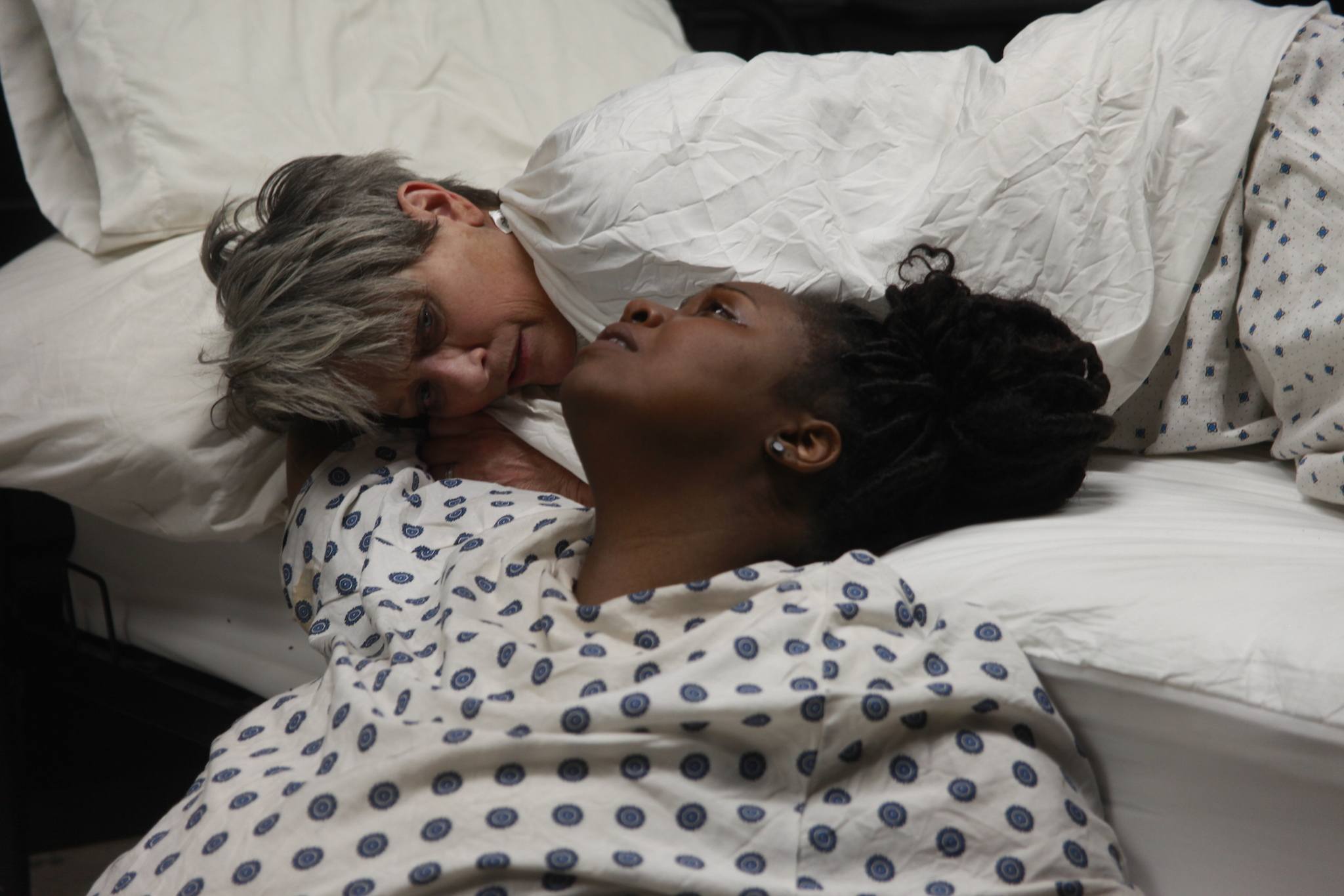A war is never over for those who have lost the battle but still live. Memories are haunting and the ghosts of trauma pass from generation to generation. The Trojan Women tells the stories of women in the hands of their enemies after a tragic defeat. Engaging with the narrative underbelly of a burning and broken city at war, Civic Rep’s production folds audience members into a story of vengeance, resilience, and power.
Civic Rep is presenting British poet/playwright Caroline Bird’s reframing of Euripides’ epic, written in 415 B.C. Bird’s poetic adaptation is set in a prison’s mother-and-baby unit, and updates the time to a nonspecific modern period with machine guns, swearing, and condoms. The prison acts as a holding space between the death the captive women have witnessed in the war between the Trojans and the Greeks and the slavery that lies ahead. Civic Rep’s design choices for the prison enhance the visceral and sensory experiences of women under enemy control: The hospital-like lighting is fluorescent and invasive, flashing and dimming in relation to the intensity of the dialogue. The first rows of the audience are in the light, and therefore in intimate proximity to the actors’ stories and suffering; the audience can see the veins swell in the prison guard’s neck as he yells at the women of Troy. The other elements of the design—minimalist, white, and sterile—allow the audience to envision, without trouble or disruption, the stories that the women of Troy are sharing. If the aesthetics of the design had been any more complex, the important narratives would have been lost in the visual clutter.
L. Zane Jones’s performance as Hecuba, the fallen queen of Troy, prompts the audience to question the intentions of those in power—an underlying theme of The Trojan Women. Hecuba often speaks in political sound bites, making vast overgeneralizations about war and glossing over the reality of suffering for the majority of the Trojan people. The audience often responded to Hecuba’s political slogans with laughter, because her embodiment of the slimy politician type was so poignant. Her character’s believability invites the audience to ponder: In times of conflict, who is being silenced? People most affected by the decisions of those in power are often the least heard in decision-making. In the times we find ourselves in, critical art like Civic Rep’s The Trojan Women reminds us never to stop asking that question. Slate Theater, 815 Seattle Blvd. S., civicrep.org. $20–$30. All ages. Showtimes vary. Ends Sun., Jan. 27.








